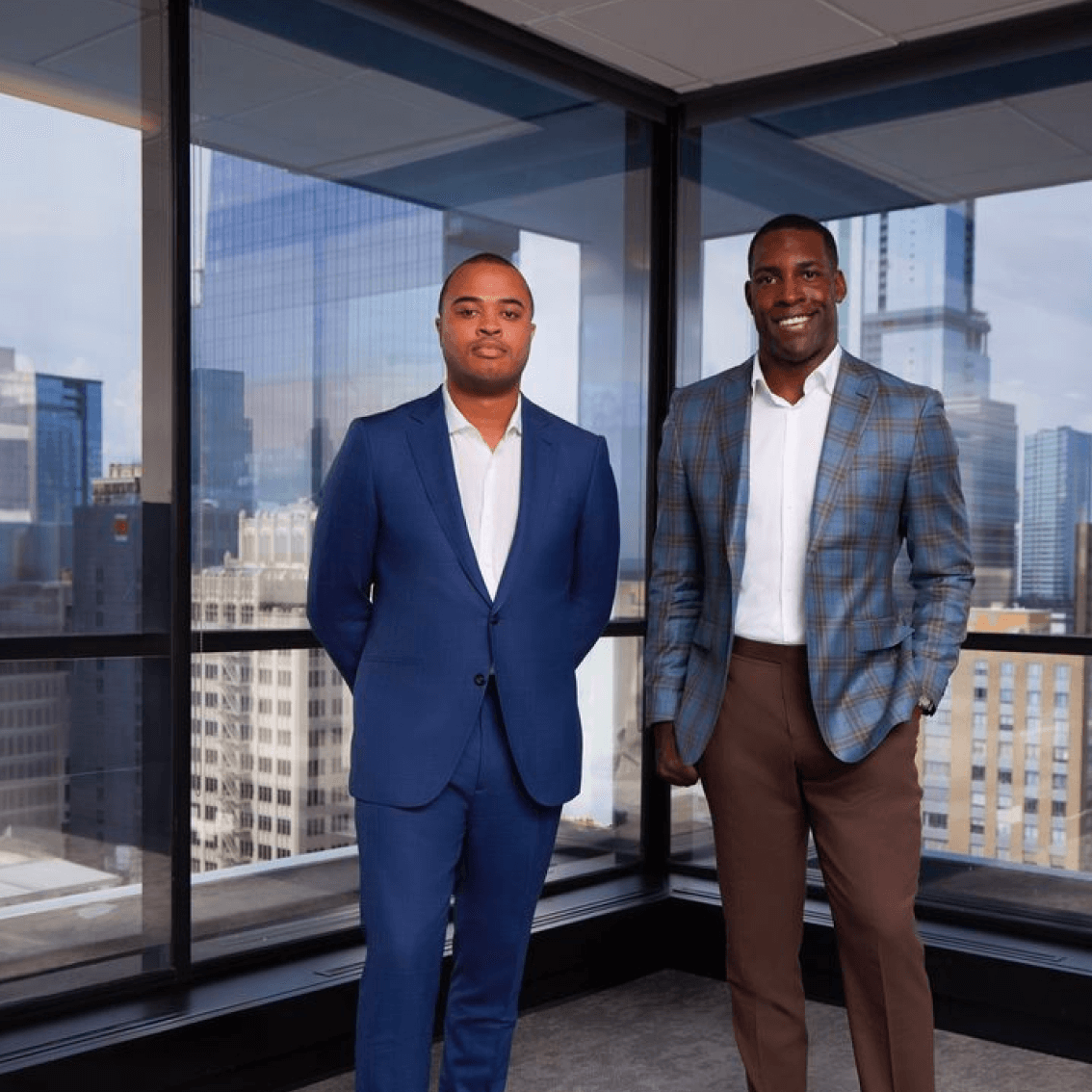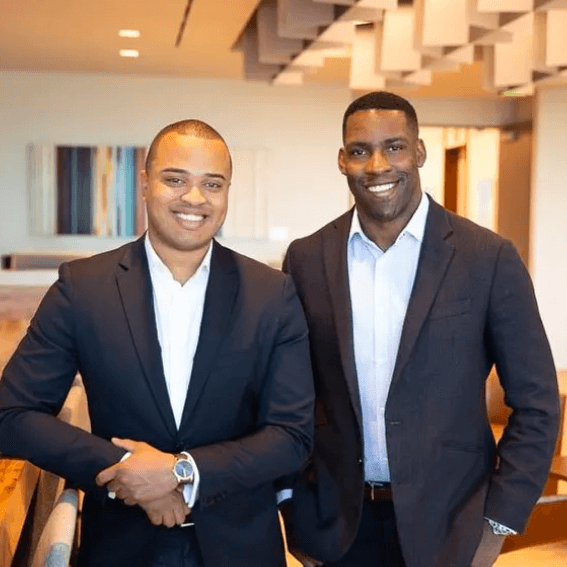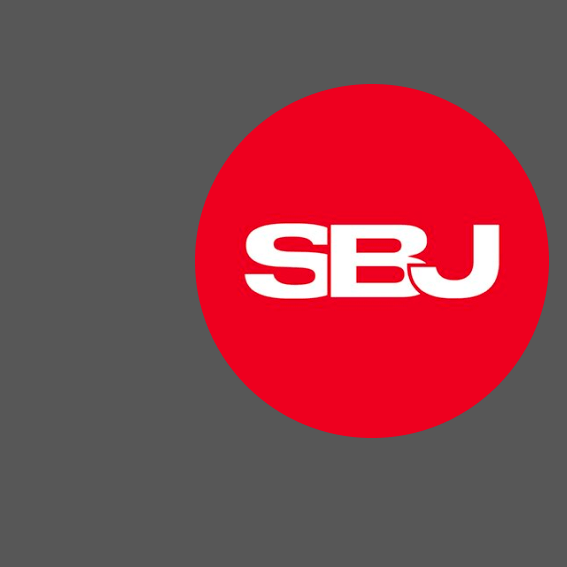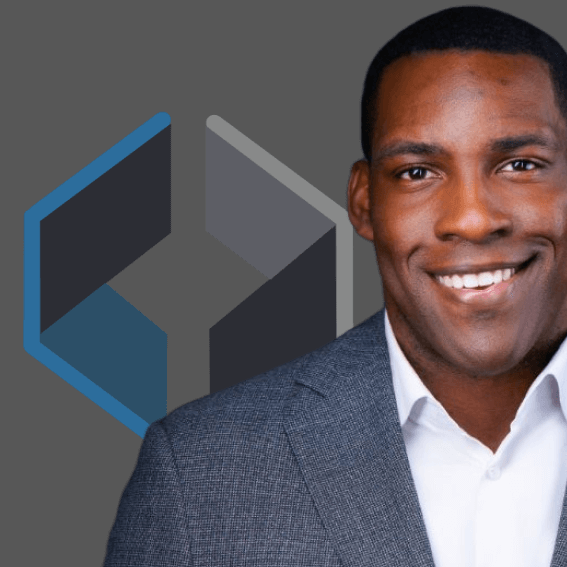
News
For press inquiries, please reach
out to press@txvpartners.co

Article Type
Search
TXV Partners, a minority-led firm equipped with growth capital from investment manager CAZ Investments, aims to raise a private-equity fund focused on backing sports-related businesses.
TXV Partners, a minority-led firm "equipped with growth capital from investment manager CAZ Investments, aims to raise a private-equity fund focused on backing sports-related businesses," according to Isaac Taylor of the WALL STREET...
Evo and CAZ Partnership Announcement
Capitalizing on early-stage success in human performance companies, TXV Partners expands its focus to include the broader sports ecosystem
Human Performance White Paper
In 2018, when we made our first investment into a company called Future, we didn’t yet grasp how much the mission of that company, and the movement it exists in, would be central to our careers in venture.
Host John Coleman is joined by two leaders in the venture capital and growth equity space: Brandon Allen, Co-founder and Managing Partner at TXV Ventures and Phil Jung, Partner at Sovereign's Capital to discuss how they’re navigating the rocky state of venture capital and growth equity.
We got the chance to talk with Marcus Stroud, co-founder and managing director of TXV Partners, during South Summit Brazil in 2022. He shares his thoughts on the importance of being purpose-driven, both in your career and in life.
Episode 150 - Building a Community of Investors (Why and How) with Brent Beshore and Marcus Stroud
Brent Beshore and Marcus Stroud join us today to talk about how they’ve found great joy in building a community of investors and to give practical guidance on how others can do the same.
Marcus Stroud, Kauffman Fellows Class of 2028
Marcus is the Co-Founder and Managing Partner of TXV. TXV is a multi-stage thematic investment firm, based in Austin.
Optimizing Human Life
At the Forbes Under 30 Summit Africa, the Optimizing Human Life panel featured Brandon Allen, cofounder & managing partner, TXV Partners; and Ralf Alwani, cofounder, Urban Scale Interventions.
In this episode, we speak with the co-founder of TXV Partners Marcus Stroud. Marcus shares his background as an athlete and how that helps him in the competitive world of venture capital. The stories he shares from his Princeton days to those of being the son of an NFL football player are inspiring!
Take Brandon Allen and Marcus Stroud, cofounders of TXV Partners. The former Princeton roommates set up shop in Texas as one of the few Black-led firms in the state, already investing more than $20 million so far into companies looking to benefit from a Lone Star presence.
Go Chase Everything
Although Marcus Stroud is a decade younger, I am always struck by the blessing he is to me as a friend and role model. The phrases “force of nature” and “change the world” feel small when describing Marcus’s power and intensity. He uses the words “disciplined” and “passionate” to describe himself without ego, and I feel the energy of his discipline and passion more intensely than the words can convey.
Each year, D CEO magazine announces the “Dallas 500”, a list of the 500 most influential business leaders in the Dallas-Fort Worth area. This list regularly features names like Mark Cuban and Jerry Jones. In 2020, it featured its youngest-ever member, a linebacker-turned-executive, Marcus Stroud ’16.
Marcus Stroud’s story is one you might not even believe as you hear it. He experienced ups and downs as his life intersected with people like President Barack Obama and MLB All-Star Torii Hunter.
An emerging venture firm in Texas is aiming to invest in diverse founders and utilize its external partnerships and strategic LPs to provide value-add resources to early-stage companies.
Governor Greg Abbott has reappointed Michael P. Henry, D.C. and Scott Wofford, D.C. and appointed Brandon Allen to the Texas Board of Chiropractic Examiners for terms set to expire on February 1, 2025. The board is responsible for regulating the practice of chiropractic.
On this episode about taking risks, here now are two men with Texas-sized entrepreneurship goals, deep in the Lone Star State. Meet Marcus Stroud and Brandon Allen, the founders of TXV Partners, a venture capital firm.
Volaris will be migrating its entire revenue management operations onto Kambr’s Eddy platform after the two organizations recently struck a deal.
The addition of Kambr’s cloud-based, open and modular set of solutions into Altéa and Navitaire will enhance airlines’ operational efficiency
Along with cofounders Martin Kaduc, Michael Peters, and Chris Anthony, Kelly is launching the startup Kambr today and announcing $4 million in seed funding. VC firms Founder Collective, Global Founders Capital, Studio VC, Silicon Badia, C2 Ventures Capital Partners, and TXV Partners participated in the round.
The smart ring can now tell whether someone is a or a night owl and adjust their sleep schedule accordingly.
All the statistics I never needed to know about myself changed the way I think about, well, me.
Available in five beautiful shades, this discreet smart ring from Oura has built-in sensors that collect wellness info including heart rate, heart rate variability (HRV), temperature and activity and sleep data.
Oura for Business was launched yesterday with the promise of bringing its sleep insights into all corners of industry: corporations, higher education, athletics and the military.
Health, wellness, and fitness: The 10 next big things, from surgical AR to a better bike computer
When technology helps doctors heal people suffering from medical crises, that’s great. When it can reduce the chances of problems from occurring in the first place, that’s even better. And when it becomes part of everyday life, it can encourage habits that make us all healthier. These innovative projects include a new tool for understanding metabolic health, a tool for better breast tumor removal, and an app that reminds users to enjoy the great outdoors.
A second iteration of the collaboration between the Italian brand and a Finnish health technology company is expected this fall.
The Oura smart ring is now compatible with Natural Cycles digital birth control, the companies announced today. The partnership lets Natural Cycles users pull in temperature information from their Oura Ring rather than manually take a temperature for the app each morning.
In the tenth annual Disruptor 50 list, CNBC highlights private companies that grew through the ups and downs of the pandemic and are poised to meet increasing economic and consumer challenges.
We love big, round numbers here in hardware land. Hitting one million of anything is an impressive feat, let alone one million $399 smart rings. It’s too soon to suggest that Oura has permanently transformed the wearables space, but in a time when things have calcified around the smartwatch form factor — and one specific smartwatch in particular — it’s worth noting when a startup arrives on the scene to shake things up.
It’s sleek and fits in with my ever-growing collection of silver jewelry. But beyond being aesthetically pleasing, the Oura ring has made it easier for me to tune into my day-to-day health, whether that means keeping my body moving throughout the day to hit my Activity Goal or charting the quality of last night’s sleep to make sure I’m getting the most out of bedtime.
Abs. We all have them. But the first time I saw mine? At 43 years old. This was after three babies (my kids are 12, 12 and 8), and while working the most intense job of my career.
I don't know about you, but I know my best bet for fitting exercise into crazy busy days is to have a workout app on my phone. Sure, I love my gym, but apps give me the guidance to stop, drop, and roll into any exercise I want at any point in time, whether I'm traveling or just getting up from my couch.
Self-care and wellness are a priority for many Americans, and technology is increasingly becoming a tool to support their efforts. They can use this modern technology anywhere and anytime, and they can customize it to meet their needs.
If you're worried about how to maintain your gains outside of the gym, then you'll love the Ladder app. Ladder is specifically designed for strength training and connects you to many strength coaches who specialize in various fields.
Remember how you used to walk around the gym with a notepad to write down every single exercise? This app can replace that old paper and give it an infusion of smarts.
These free, top-rated programs make it easier than ever to exercise at home.
LivWell Ventures led the round; additional investors include Keller Capital, Brett Hurt of Hurt Family Investments and former Co-Founder & CEO of Bazaarvoice, NFL wide receiver Danny Amendola and Co-Founder & CEO of Athletic Brewing Bill Shufelt
Austin-based fitness startup Ladder raised $6.5 million in seed funding, the company announced Tuesday.
Best described as the "Slack of Fitness" for its emphasis on community and team engagement, Ladder Teams is poised to lead the movement of hyper-connected fitness training.
Levels is an app that uses CGM data to provide users with insights into how their diet affects their health. The initial cost of the membership includes your first month’s supply of CGMs plus the annual membership fee of $199 and tax.
Continuous glucose monitors are essential for people with diabetes. For everyone else, it’s more complicated.
Continuous glucose monitors aren’t just for diabetics: this one is designed for athletes who want hard data on how their bodies respond to different forms of food and exercise.
Josh Clemente’s Levels just raised another $38 million to fight metabolic health—and stave off the $327 billion spent annually on the effects of diabetes.
Many people have become accustomed to devices quantifying their steps or heart rate. That’s just the beginning.
A new crop of digital health companies is using blood glucose monitors to transform the way we eat.
Real-time glucose tracking for fitness-based purposes is here, but it’ll cost you
You CGM, Right, Bro?
Once reserved for diabetics, continuous glucose monitoring is the hot new biohacking tool. Levels and SuperSapiens are harnessing the tech to help you supercharge athletic performance, boost energy, squash bad moods, and lose fat.
The Future fitness app offers customized personal training tailored to your schedule, goals and equipment—plus your own professional coach.
It helps to get some professional help. But personal training can cost hundreds, if not thousands, every month, and typically involves multiple 1-hour slots on a strict schedule every week. This works for some, but others need more flexibility. Enter the Future app.
After a debilitating injury, Future helped me gain strength, shed fat and lead a more normal life.
My discovery of the Future Fitness app is a pandemic cliche: In lockdown I had stopped moving. According to my watch, the trips to and from the kitchen to prepare an endless stream of snacks for my zoom-schooling children added up to just a few hundred steps a day. I felt bad — caged, anxious, simultaneously stuck and out of control. After months of casting about for something to do, I discovered Future.
Future, a digital fitness coaching service, has raised $75 million in Series C funding, bringing its total funding to date to more than $110 million, the company announced on Feb. 3.
Future, a digital fitness company that pairs users with coaches, is raising funds as the industry realigns itself after years of disruption related to the pandemic.
Digital fitness coaching app Future has raised a $75 million Series C round with investments from NBA star Kevin Durant, five-time NFL Pro Bowler J.J. Watt and PGA Tour star Rory McIlroy. Other investors in the funding round include UFC owner Endeavor, actor siblings Kate Hudson and Oliver Hudson and Harris Blitzer Sports & Entertainment, which owns the Philadelphia 76ers and New Jersey Devils.
Digital and online fitness programs have really taken off the past few years. While many convenient (and safe) ways to work out were born from pandemic necessity, only some have continued to gain users. Why? Because consumers are now looking for the options that solve more than an issue tied to convenience - they’re looking for solutions that work virtually, without compromising on the interpersonal aspects of in-person training.
data.world Announces Data Governance and Data Catalog Integrations with Snowflake’s Snowpark
data.world, the data catalog platform, today announced at Snowflake’s annual user conference, Snowflake Summit 2023, an integration with Snowpark, the developer framework for Snowflake, the Data Cloud company.
data.world today launched new automations and automation-driven workflows to dramatically accelerate the delivery of governed data across enterprise teams. The announcement introduces the third class of AI-driven bots on the data.world Data Catalog Platform.
Automations are core to the new data.world DataOps application – designed to increase confident data use by closing the communications gap between data engineers and data consumers
data.world integrates with ThoughtSpot to catalog the modern data stack, providing enterprises with a foundation for faster, smarter decision making
data.world surpasses two million members of its open data marketplace community, continues to expand marketplace data sets available with the Associated Press, and names Anita Lynch as a new board member
New Platform dramatically improves data discovery and makes it possible for more people to unlock organizational knowledge with the industry’s most used data catalog
When a group of Austin tech veterans founded data.world in 2015, their goal was to build a social network where data scientists are able to connect and share collections of data.
Funding will accelerate growth, innovation, and expansion into new global markets
For all the talk about the criticality of data for businesses, enterprise data is commonly siloed, unreconciled and spread across disparate systems, making it challenging to use and analyze.
Texas headquartered Data.World, which provides a cloud-based data catalog to enterprises, today announced it has raised $50 million in a series C round of financing.
data.world announced a suite of new features aimed at easing data discovery and access, automating workflows, and enabling self-service for data workers. New capabilities are available to enterprise customers and include Search Builder, Sensitive Data Discovery, and SQL and SPARQL Time Travel. Another feature, called Concept Cards, is set to be released later in the year.
The co-founders of data.world believe that a common, collaborative platform for data can change the world.
Health resolutions are at the top of the list every new year. The start of a year is a great time to reexamine what we want and how we can build an action plan to get it. It’s a time of self-reflection. What is my relationship with my body? How has my mental health changed over the past twelve months? How can I make my well-being a priority?
How to Increase Mental Strength
When was the last time you stopped to evaluate your mental strength? It’s an important part of your overall wellness—one we often neglect, especially as young Black men. It’s time to take a closer look at what it means to be mentally strong and what you can do to get there. When you begin taking steps to improve your mental fortitude, you’ll see for yourself just how valuable it is.
1% Better Each Day, with Corey Lewis
We chopped it up with former professional football player Corey Lewis about his health and wellness platform 1AND1, inspiring others to choose to become 1% better each day. Lewis reminds us that on our wellness journey, progress trumps perfection, and slow and steady wins the race!
Mental health has been a perpetual taboo in the Black community, despite the fact that Black adults are 20% more likely to experience serious mental health problems.
Find a Hobby — Occupying your time with meaningful activities other than work will keep your brain at its sharpest and will make you happy in the long run. For me, it’s working out. That’s my outlet, but there are so many things from swimming, golf, and reading, to knitting, yoga, and dance. The possibilities are endless. Find something that you love and stick with it.
Ceresa, whose employee learning platform is used by globally leading companies such as Nordstrom, Walmart, Blackstone, today announced a $3M funding round led by TTCER Partners, EduLab Capital Partners, and LiveOak Venture Partners, and joined by Gaingels, Goodwater Capital, TXV Partners, and Notley.
We invited Ceresa to participate this month because of their particular focus on helping diverse leaders rise. Executive coaching — and leadership development — has been an exclusive, elite activity for too long. They are the perfect addition to this issue.
Based on our reporting from every major U.S. tech hub, there’s a strong case for optimism in an uncertain year.
Duo Helps Foster Diversity in Boardroom with Ceresa
Startups To Watch: Stix, Sanzo, WorkPatterns, Jamm, Ceresa, BRIO Systems, Proper, Tetra Insights
I’ve written quite a few stories in the past few months (see LOOM, Kindbody, Tia and Stork Club) related to startups helping educate women about their health and reproduction. Now meet Stix, which aims to reduce the stigma associated with buying and understanding sensitive health products, such as pregnancy and ovulation tests.
In 1979, Margaret Thatcher was elected as Britain’s first female prime minister. At the time, newspapers screamed it was a sign the glass ceiling had been shattered, Ceresa CEO Anna Robinson said. But more than 40 years later, just 37 women lead Fortune 500 companies, which still represents the greatest number in the magazine’s 65-year history.
Austin startup Ceresa, which offers a virtual training and mentoring platform, said Wednesday that it has raised $1 million to continue its growth and expand its product development.
Mission Driven: 5 Austin-Based Social Impact Startups You Need to Know
Diana was my first boss. She hired me months after I graduated from college at the height of the Great Recession, and I might have adored her simply for that, had she not turned out to be a wonderful person, as well. At work, she was an advocate, giving me challenges along with the support I needed to grow. As we got to know one another personally, she became a sounding board for career decisions that would ultimately affect my future.
Virtual technology can help create a more equal reality.
The Path to Mentorship
Whether you’re looking for career guidance or are ready to share your expertise, this practical guide to all things mentorship will help you take the first step.
An online mentoring programme created for women by women is helping to tackle top-level gender disparity. Anna Robinson talks about the impetus for setting up Ceresa and the success of its first year.
Continuous L&D requires continuous monitoring of results — but some parts of these programs may still feel impossible to measure.
You can define "tech" in a lot of ways. But no matter how you cut it, it's a growing part of the economy and our daily lives.
When former broadcast journalist Karli Mullane read about women’s mentorship organization Project Mentor, it was on a particularly self-doubting day. The founder of Galuxsee, which gives travel recommendations based on where celebrities have been, had attended seminars and watched “Shark Tank,” read books and made shameless asks on Facebook, but none of the advice she found really applied to her creative endeavor.
Anna Robinson joins us in a conversation about her organization CERESA, a platform that connects women leaders for radically better mentorship. The organization's goal is to foster genuinely beneficial relationships between mentor and mentee that help bridge the gap in women's leadership across the world. In this episode, we speak with Anna about the global women's leadership gap, why women often find it difficult to be mentored by men, and how more women than ever today are actively seeking out mentors. Listen to how this Austin organization is changing the rules of women's mentorship.
Ceresa, a next-generation leadership acceleration platform that is fostering a new era of diverse leaders, today announced it has closed an early seed round over $1 million led by LiveOak Venture Partners and Next Coast Venture Partners.
Ceresa expands executive team with additions of Nicole Tanzillo and Beth Yehaskel
A new concept in health care has arrived in Tulsa’s Greenwood District. In July, Juno Medical, a national company providing community-based, family-centered care with a focus on technology, accessibility and affordability, opened at 21 N. Greenwood Ave.
The funds will be used to add additional brick-and-mortar locations, recruit new healthcare providers and expand its technology platform.
With two locations in New York City, Juno is reimagining modern healthcare for families and will open in Atlanta, Tulsa, and Los Angeles in 2023 under the leadership of Juno Founder and CEO Akili Hinson
Juno is your place for comprehensive health care that features exceptional hospitality, modern technology, and transparent prices that won’t break the bank. We bring the best of high-quality pediatrics, primary care, women’s health, and same-day care into one beautifully designed place to provide a modern medical experience for the whole family. Book now
Juno Medical Clinic is officially open to the public. The Black-owned, 3,800-square-foot office is home to a medical center seeking to expand healthcare to underserved populations nationwide. The celebration of the clinic’s opening marked 102 years since the Tulsa Race Massacre and more than 50 years since the urban renewal project in the city.
Located at 21 North Greenwood suite A, the 3,800 square-feet office of Juno Medical sits just a few feet away from where Dr. Andrew Chesteen Jackson held a medical practice on Black Wall Street 102 years ago.
Even after billions of venture capital raised and invested into the digital health space, it’s still difficult to access quality healthcare. And while that may raise questions as to whether a scrappy startup has a fighting chance at fixing things, to entrepreneur Akili Hinson, it just means that Juno needs to be even smarter about the neighborhoods it targets.
Juno Medical, the modern doctor’s office that’s designed for the 99% raises $12M in Series A funding co-led by Julian Eison, Managing Partner at NEXT VENTURES, and Serena Williams, Managing Partner at Serena Ventures. Other notable participants include Vast Ventures, which led Juno’s seed round, Empire State Development’s New York Ventures, TXV Partners, Genius Guild, Gaingels, and previous investors Atento Capital and Humbition.
Check out new developments from Equiva Health, BehaVR, Juno Medical, Cabinet Medical and Override.
Coordinating people, projects and their various locations has become a headache for companies in the post-pandemic world of remote and hybrid working.
When the World Reinvented Work, This Startup Reinvented Itself
As more companies embrace a hybrid work model, leaders must be proactive about technology, communication tactics, and related issues. Consider these strategies to avoid potential pitfalls
New research from Kadence (formerly Chargifi) has revealed that after a year of flexible working, almost two-thirds of US and UK office workers (62%) now feel more trusted to do their job effectively. Of those workers, half also feel more motivated to do a better quality job (51%) and go the extra mile (48%) thanks to their new working arrangements.
New research from Kadence claims that since working from home, Gen Z and Millenials feel disproportionately isolated, and say it is negatively impacting their ability to build and develop relationships at work – and potentially harming their career progress.
The founder of a UK-founded technology company expects it to grow 100% this year following a ‘hard pivot’ from hardware to software.
Namecoach, a web-based tool that allows users to record and share the pronunciations of their names with others, will be available at no cost to all University of Utah students, faculty and staff and University of Utah Health personnel in Canvas, one of the university’s learning management systems, on Tuesday, Aug. 1, 2023.
UITS Monitor: Learning NameCoach
Even what we think of as simple names can be mispronounced by those who are not used to saying them. Avoid this issue by recording your name with NameCoach.
Namecoach, the technology company solving name mispronunciation in critical settings, today announced that its latest product update is now available.
Namecoach, the technology company solving name mispronunciation in critical settings, today announced that it’s providing its Namebadge tool to P&G’s “The Name,” the second year of the company’s APA Heritage Month Campaign.
Case Western Reserve University recently purchased a product to help students, faculty and staff pronounce student names. This product, NameCoach, provides easy-to-access audio name pronunciations to make every student feel welcome at Case Western Reserve.
We’ve all been faced with a name that’s difficult to pronounce. But not everyone considers the consequences of their mispronunciations. In a piece for Fast Company, Madhumita Mallick, the head of inclusion, equity and impact at Carta, recalls how her name became a source of anxiety even when she was a grade-school student.
Namecoach Lands $8 Million Series A to Advance DEI and End Name Butchering in the Workplace
Namecoach, the technology company solving name mispronunciation and gender communication in critical settings, has secured a Series A funding round of $8 million led by Impact America Fund with participation from Authentic Ventures, Metaplanet, Founders Fund, Engage VC, Ai Sprouts Fund I, GTM Fund, 640 Oxford, Transcend Network, Asymmetry Ventures, Forefront Venture Partners, Network.VC, Harbor Street Ventures, and Seabed VC.
Namecoach, the technology company solving name mispronunciation in critical settings, today announced that it achieved SOC 2 Type II compliance, the most sought-after security framework for growing SaaS companies.
Namecoach, the technology company solving name mispronunciation in critical settings, today announced that it achieved SOC 2 Type II compliance, the most sought-after security framework for growing SaaS companies.
UW–Madison students, faculty and instructional staff are now able to record and share their name pronunciations in Canvas through a new feature called NameCoach.
Stumbling over the pronunciation of an employee's, client's or customer's name can be more than a workplace faux pas. When it occurs repeatedly—especially after the person provides the correct pronunciation—it becomes a microaggression, according to experts, and can lead to people being excluded in the workplace.
Canvas will include a new feature that gives students the ability to record a pronunciation of their name for better understanding by peers as part of an ongoing initiative to foster a sense of belonging at UT.
You wanna go where everybody knows your name," according to the famous theme song from the television sitcom Cheers. But according to a new study from NameCoach, work is not as inclusive as Cheers when it comes to pronouncing names correctly. The new study reveals that 44% of respondents had their names mispronounced in an interview, and 41% had their names mispronounced in a customer meeting. The survey of U.S. workers shows that Hispanics were among the most impacted, with 59% having their name mispronounced in an interview.
Stanford students have a tradition of welcoming first-year students on move-in day by memorizing their names and calling them out when new students arrive at their dorms. A new service uses technology to build on that tradition.
Florida State University recently adopted a new technology, NameCoach, which allows students to record the proper pronunciation of their names for other members of the university community. According to a university announcement, the program has been employed with the goal of supporting diversity and inclusivity on campus.
Four Canadian post-secondary schools have adopted NameCoach tool
No longer will teachers fumble over students’ names and struggle with pronounciation.
Playing the name game
Examining how names and pronunciation play a role in the classroom
Learning how to correctly pronounce names goes a long way toward helping community members feel respected and valued
The phrase, “Sorry in advance if I butcher your name!” is a hallmark of the beginning of the semester and professors adapting to new student names, many of which come from diverse origins. But professors now have a new tool to help them avoid misgendering students and mispronouncing names.
When Tresor Brill enters a classroom for the first time at the start of each semester, she knows what to expect: readings, class discussions, homework—and the professor mispronouncing her name (which should be pronounced “tray”-”soar”).



